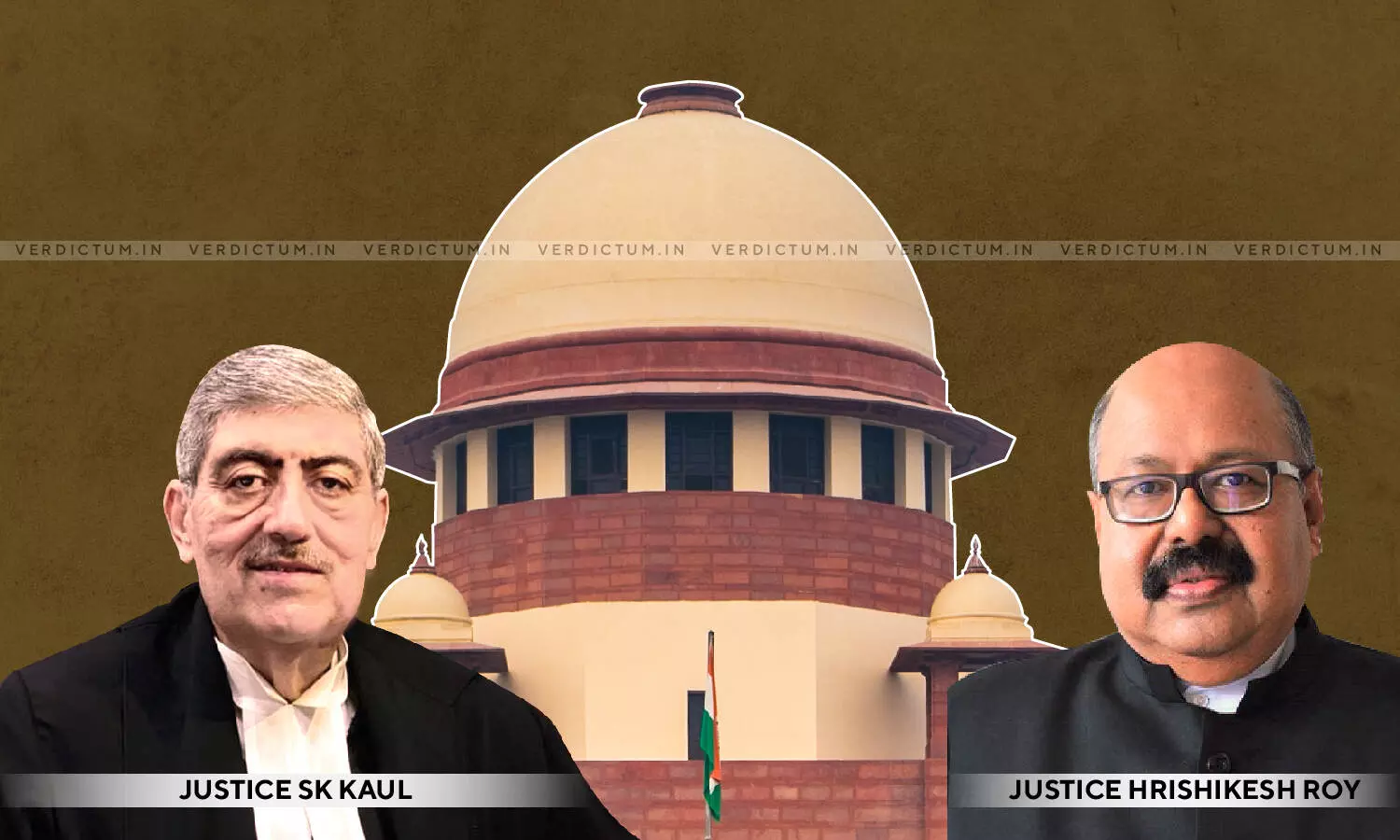
Dying In Harness Appointment: Supreme Court Rejects Employer's Argument That Deceased Was Not A Regular Employee
 |
|A two-judge Bench comprising of Justice Sanjay Kishan Kaul and Justice Hrishikesh Roy has held that when a part-time employee is given the perks of a regular employee and his working hours are equivalent to that of a regular employee, he would be entitled to enjoy the same status of a regular employee even if his appointment was termed as part-time, for the purpose of dying in harness scheme. Court held so, considering the peculiar factual scenario relating to the deceased employee in the case.
Appeal was preferred before the Supreme Court against the Judgment of a Division Bench of the Allahabad High Court which had granted the Respondent the benefit of compassionate employment under the Uttar Pradesh Recruitment of Dependants of Government Servants Dying in Harness Rules, 1974, on the demise of his father who was employed with the Appellant.
Initially, the Respondent's father had litigated against the Appellant to secure his appointment as a Tubewell Operator. The High Court held that his selection was against a regular vacancy and he had submitted all necessary documents. The Appellant held up the actual appointment of the Respondent's father for six years. He worked for 13 years and drew the same remuneration as that of a regular employee.
The Respondent contended that other similarly placed persons were given appointment under the dying in harness scheme and that he was denied employment because of the past litigation between his father and the Appellant.
The issue which arose for consideration was whether the father of the Respondent was a regular employee, to determine if the benefit could be given to the Respondent.
The Respondent argued that his father was treated as a regular employee since he also had intra department transfers, which only regular employees are subjected to. Also, his working hours and the emoluments which he drew were equal to that of a regular employee.
The Respondent contended that as his father was in continuous service for more than 3 years he was bound to be treated as a Government Servant as per the Uttar Pradesh Recruitment of Dependants of Government Servants Dying in Harness Rules, 1974.
While the Appellants contended that Respondent's father was not regularized and the mere grant of equivalent benefits on the principle of 'Equal Pay for Equal Work' would not give him the status of a regular employee.
The apex court after considering the contentions of both the parties was in complete agreement with the Allahabad High Court. "It appears that the appellants, for reasons best known to them, endeavored to deny the father of the respondent his dues even though the appointment was through a proper process," the Court observed.
The Bench held, "The High Court has found that these facts show that the appointment was against the regular vacancy though it continued to be termed as a 'Part Time' appointment apart from the fact that his work hours were of a regular employee entitling him to equal pay for equal work."
The Court further opined that the Respondent's father had many intradepartmental transfers which could only happen for a Government employee.
The Court held that it was a case of appointment against a regular vacancy and Respondent was discriminated against due to the previous litigation between the Respondent's father and Appellant. The Court also noted that the Respondent's father could not have been sent for election duty under the State Election Commission unless he was a government employee as per Section 159 of the Representation of the People Act, 1950.
Accordingly, the decision of the Division Bench of the Allahabad High Court was upheld and the appeal was dismissed by the Court, with costs throughout.